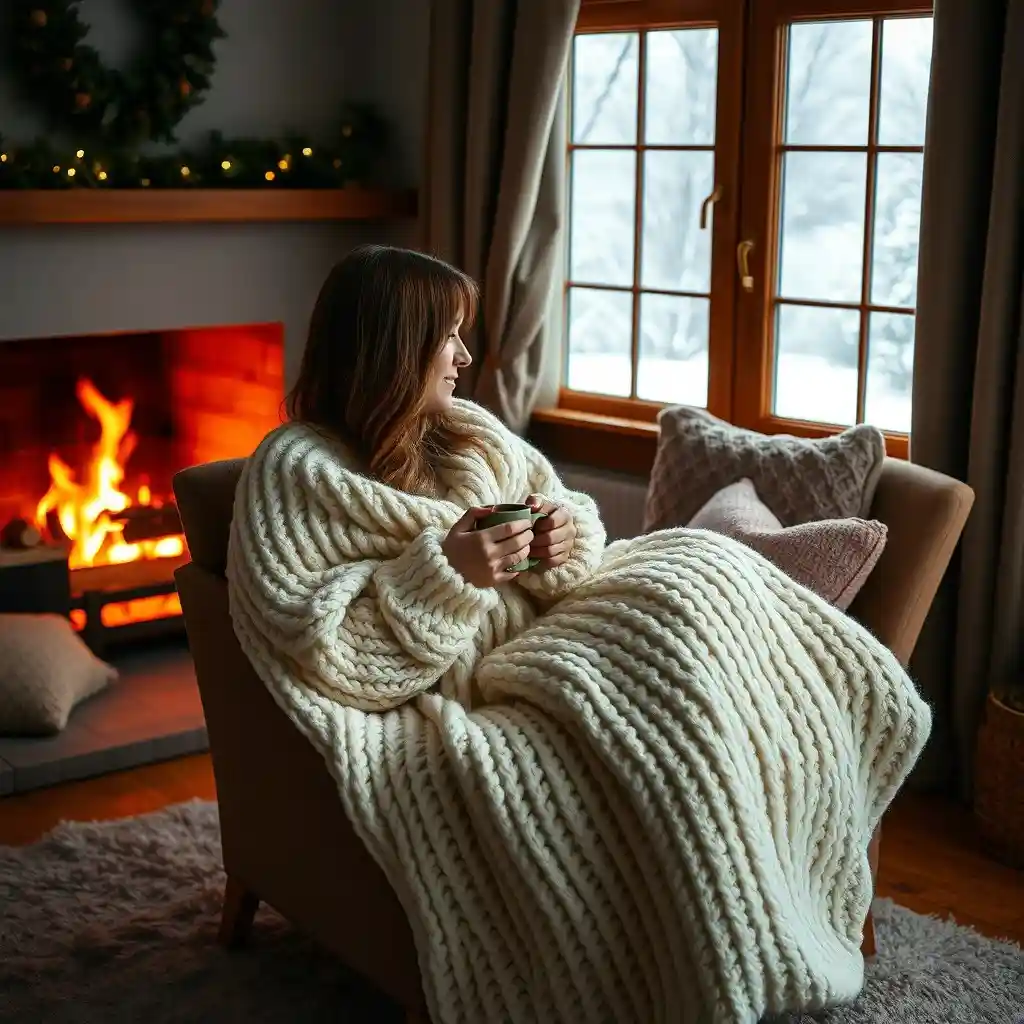
The Comfort Connection: How Clothing Impacts Mood
Clothing serves more than just a practical purpose. It can influence our emotions and how we feel about ourselves. When we wear something comfortable, it can signal thermal comfort to our bodies that it’s time to relax. This feeling of relaxation can be particularly beneficial for those managing workplace anxiety
Beyond the Blanket: Cozy Clothes as Self-Care
Choosing comfortable clothing can be a simple yet powerful act of self-care. It’s about prioritizing your comfort and well-being. This can be especially important when you’re feeling overwhelmed
Think about how you feel when you wear something that makes you feel confident and comfortable. That feeling of ease can translate into a more positive mindset. Cozy clothes can provide a similar sense of comfort, helping to reduce feelings of anxiety and promote relaxation. It’s like giving yourself a warm hug.
Find A Therapist That Specializes In Stress Management and Anxiety
Our therapists at Integrative Family Counseling understand the challenges of stress and anxiety. We can help you develop coping skills and strategies to improve your mental wellbeing.

Sandra Villwock
My approach to therapy uses a variety of techniques and modalities to individualize treatment to each client's unique needs. Whether it's supportive therapy, mindfulness-based therapy or other forms of psychotherapy, I work collaboratively with each client to develop a plan that will help achieve his or her goals and be their best self.
View Sandra's Profile
Precious Bradley
I bring a unique approach to my clinical work, empathizing with vulnerability as a key aspect, complemented by a strong sense of empathy and curiosity. I have a deep passion for the therapeutic process and a firm believer in the transformative power of change. I have spent years working with folks who are struggling with many different mental health issues.
View Precious's Profile
Amy Carbone
I am a Licensed Clinical Social Worker, empathetic, non-judgmental gal who accepts all clients for who they are. I believe in starting where the client is at that moment in their life. I think the most important part of therapy is the therapeutic relationship.
View Amy's Profile
Bionca Martin
Let me help you find balance in your life: I work with children, adolescents, teens and adults with mood disorders, substance use disorders, behavioral problems, emotional disturbance, impaired social functioning as well as abuse survivors (mental, physical, neglect, financial, medical, educational) and perpetrators.
View Bionca's Profile
Joseph Spagnola III
With over 10 years of experience in healthcare and psychiatry, Joe is skilled in outpatient, evidence-based treatment of the following conditions, among many others.
View Joseph's ProfileThe Psychology of Clothing: What We Wear and How We Feel
The clothes we wear can significantly impact our mental state. This is a concept known as “enclothed cognition.” It suggests that clothing can influence our thoughts, feelings, and behavior. For example, wearing professional attire might make us feel more focused and competent. Conversely, wearing comfortable clothes can make us feel more relaxed and at ease.
This is why choosing your clothing intentionally can be a valuable tool for managing your mental health. If you know you have a stressful day ahead, choosing something comfortable and cozy might help you feel more grounded and centered. It’s not about dressing in pajamas all day, but rather about incorporating comfortable elements into your wardrobe.
Creating a Cozy Environment: Extending Comfort Beyond Clothing
The benefits of comfort extend beyond just the clothes we wear. Creating a cozy environment at home can also positively impact our mental health. Think about creating a space where you can relax and unwind. This might involve adding soft blankets, comfortable pillows, or even a diffuser with calming scents.
This “cozy corner” can be a sanctuary where you can retreat when you need a break from the stresses of daily life. It’s a place where you can feel safe, comfortable, and at peace. Combining comfortable clothing with a cozy environment can create a powerful sense of relaxation and well-being.
Finding Your Comfort: What Works for You?
The concept of “cozy” is subjective. What feels comfortable to one person might not feel the same to another. It’s important to experiment and find what works best for you. This might involve trying different fabrics, styles, and even colors.
Some people might find comfort in oversized sweaters, while others might prefer soft leggings and a t-shirt. There’s no right or wrong answer. The key is to choose clothes that make you feel good about yourself and promote a sense of calm and relaxation.
Cozy Clothes and Mental Health: A Helpful Tool, Not a Cure
While cozy clothes can be a valuable tool for managing stress and promoting relaxation, it’s important to remember that they are not a cure for mental health conditions. If you are struggling with anxiety, depression, or other mental health issues, seeking professional help is crucial. Therapy and medication can be very effective in treating mental health conditions.
Cozy clothes can be a helpful addition to a comprehensive mental health treatment plan, but they should not be used as a replacement for professional care. Think of them as one piece of the puzzle. They can offer comfort and support, but they cannot address the underlying causes of mental health issues.
Practical Applications: Incorporating Cozy Clothes into Your Life
Here are some practical ways to incorporate cozy clothes into your daily routine:
- At Home: Wear comfortable clothes when you’re relaxing at home. This could include pajamas, sweatpants, or anything that makes you feel comfortable.
- During Downtime: Change into comfortable clothes after work or school to signal to your body that it’s time to relax.
- For Self-Care: Choose comfortable clothes when you’re engaging in self-care activities, such as reading, taking a bath, or meditating.
- Layering: Layering clothing can help you adjust to changing temperatures and ensure that you’re always comfortable.
Insurance Coverage Made Simple
We accept most major insurance plans and offer low self-pay rates to ensure quality care is accessible to everyone. Your well-being is our priority, and we're here to help regardless of your financial situation.
FAQ: Common Questions About Cozy Clothes and Mental Health
What makes Integrative Family Counseling stand out?
How can comfortable clothing impact my mood?
Is there a scientific basis for the cozy clothes and mental health connection?
Can cozy clothes replace professional mental health support?
What types of clothes are considered "cozy" for mental health benefits?
How can I incorporate cozy clothes into my daily routine for better mental health?
Are there any downsides to relying on cozy clothes for mental wellbeing?
Does the color of my clothing impact my mental health?
Related Articles

Friendship Anxiety: Understanding and Overcoming Social Fears
Discover the impact of friendship anxiety on social interactions and mental health. Learn about the causes, symptoms, and effective strategies for overcoming social fears and fostering lasting friendships.

Best Jobs for People with Anxiety: Work That Fits Your Needs
Explore the best jobs for people with anxiety, including careers that provide a supportive environment, flexible hours, and low-stress conditions to help manage anxiety and improve work-life balance.

Driving Anxiety is Ruining My Life: Find Solutions and Support
Driving anxiety can disrupt your daily life, find effective strategies and support to manage and overcome this issue.

Online Jobs for People with Anxiety: Find Work That Fits Your Needs
Find out which online jobs are best for people with anxiety. Learn about flexible work options that can accommodate your needs and tips for managing anxiety while working from home.



